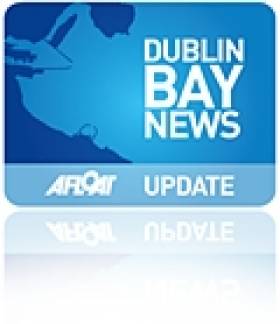Displaying items by tag: parking
#Howth - Paid parking at Howth Harbour is still on the table as a part of a review of traffic management and income generation at Ireland's fishery harbour centres, as The Irish Times reports.
Responding to a question from Senator Averil Power, Minister of State for the Marine Tom Hayes told the Seanad that Howth is one of a number of harbours under review and that "there is a broad range of other factors to be taken into account before a final decision will be made on the matter."
The story comes back into the news more than two years after local traders and stakeholders organised their opposition to proposals by the Department of the Marine to bring in charges for many of the 500 parking spaces available in Howth, citing the potentially damaging effects on the village economy.
Minister Hayes said this week that the harbour's safe operation was his department's priority, claiming that "traffic management and parking is recognised as an issue, particularly though not exclusively during the busy holiday periods."
That is despite then Howth Yacht Club Commodore Breda Dillon rejecting such an assessment in early 2013, saying that that on normal days there was only 10% occupancy of parking spaces on the middle pier.
Paid parking across the Bay continues to be a bugbear – especially for sailors transporting equipment from car to boat – at Ireland's biggest sailing centre at Dun Laoghaire where the harbour company operates a clamping policy.
Local Stakeholders Voice Upset at Howth Parking Charge Plans
#Howth - A new website has been set up outlining opposition by local traders and stakeholders to proposals to charge for parking in Howth Harbour.
As previously reported on Afloat.ie, Dublin North East TD Tommy Broughan slammed the proposals by the Department of Agriculture, Food and the Marine as "crazy" and potentially devastating for Howth's marine and tourism businesses.
Some 500 parking space are available in Howth village, which Minister of State Jimmy Deenihan has argued are being predominantly used by park-and-ride commuters.
In response to a question from Deputy Broughan in late December, Marine Minister Simon Coveney added that "the volumes of traffic currently parking at the fishery harbour, both during the working week and at weekends, are creating significant health and safety risks, to the extent that on some occasions access for emergency service vehicles is compromised."
At a meeting called by the Howth Chamber of Commerce on Monday 28 January, Howth Yacht Club Commodore Breda Dillon rejected that assessment, claiming that overcrowding was not an issue, and that on normal days there was only 10% occupancy of parking spaces on the middle pier.
Her sentiments were echoed by the majority in attendance, with area TDs and representatives of local business all referencing the potentially damaging effects that parking charges would have on the village economy. Click HERE for more on the story.
TD Slams 'Crazy' Howth Parking Charge Proposals
#Howth - "Disastrous" could be the effect for Howth's economy if car parking charges proposed by Government are introduced, as The Irish Times reports.
Tommy Broughan, Labour TD for Dublin North East, hit out at plans to charge for parking in the harbour area of the North Dublin fishing village, describing them as "crazy" and potentially devastating for Howth's marine and tourism industries.
He also criticised the failure of Marine Minister Simon Coveney and his department to consult with local stakeholders before pressing forward with the plans.
However, Minister of State Dinny McGinley argued that the vast majority of the 500 spaces available in Howth village were being used by park-and-ride commuters, and that only a small number of users involved in the fishing industry were effectively funding the service for all.
The Irish Times has more on the story HERE.
One-Bed Apartment with Galway Bay Views
#WATERFRONT PROPERTY - A stylish and modern one-bedroom apartment boasting fantastic views of Galway Bay is now available for sale at the Pointe Boise development in Salthill.
Number 26 comprises an entrance hall with plenty of storage space, a red wood kitchen with with all necessary appliances, and a living room with private balcony overlooking the Salthill promenade.
The spacious double bedroom comes with built in wardrobes, while the bathroom features a power shower. The apartment also benefits from private underground parking.
For further details contact Gormally auctioneers and property management, 1 Churchyard Street, Galway at 091 565000 or [email protected].
Dun Laoghaire Apartment Provides Stunning Vistas of Dublin Bay
New to the market in Dun Laoghaire is a two-bed apartment in a luxury development of 100 homes overlooking the waterfront marina.
As The Sunday Business Post reports, Number 99 at Harbour View boasts spectaulcar views of Dublin Bay from Clontarf to Howth from its eight-metre balcony.
The fourth-floor apartment extends to circa 102 sqm and has had no previous tenants.
Accommodation comprises an entrance hall in pale hardwood, a large light-filled living/dining area with a corner aspect, a fully fitted kitchen area with breakfast counter, a bathroom, storage room, two bedrooms (one ensuite) and a study that could be used as a third bedroom.
An underground parking space is also included in the sale.
Harbour View is located on Crofton Road beside the DART station, with the yacht clubs and the town centre itself right at your doorstep.
99 Harbour View has an asking price of €575,000. For more details contact estate agents Sherry FitzGerald at 01 284 4422.
SB3 Sailors Cry Foul at Dun Laoghaire Parking Fees
Dissatisfaction is growing among SB3 sailors regarding the cost of parking and membership at Dun Laoghaire's top yacht clubs.
In correspondence seen by Afloat.ie, one leading sailor said that clubs "need to carefully consider their pricing policies or otherwise we are going to experience a more widespread abandonment of club sailing of SB3s".
Parking and racing fees that can top more than €2,000 per year are no longer "value for money", it is claimed, and have been blamed for membership drains as well as an increase in boat sales.
Yacht club parking fees cover the mooring and security of boats on the club's property.
Unequal treatment of boat classes has also been highlighed as an issue. One sailor said: "It strikes me as being ludicrous that we pay three times what a Flying Fifteen pays to take up not much more space."
Membership fees at Irish yacht clubs were the topic of much debate on the Afloat.ie forums last year and morte on this story HERE.
Click HERE to register and have your own say.
A leading bay sailor makes the following comment. "This is a very slanted article ignoring the fact that the SB3' s in the Royal Irish for example are dry-sailed so their costs includes craneage in and out for all their racing days. Also their fees for DBSC includes dedicated SB3 racing on Sundays. If the SB3s want to moan, let them put out the whole picture and not be selective. We consider it good value, not a rip-off. The clubs have to survive and are not out to reef sailors".



































































